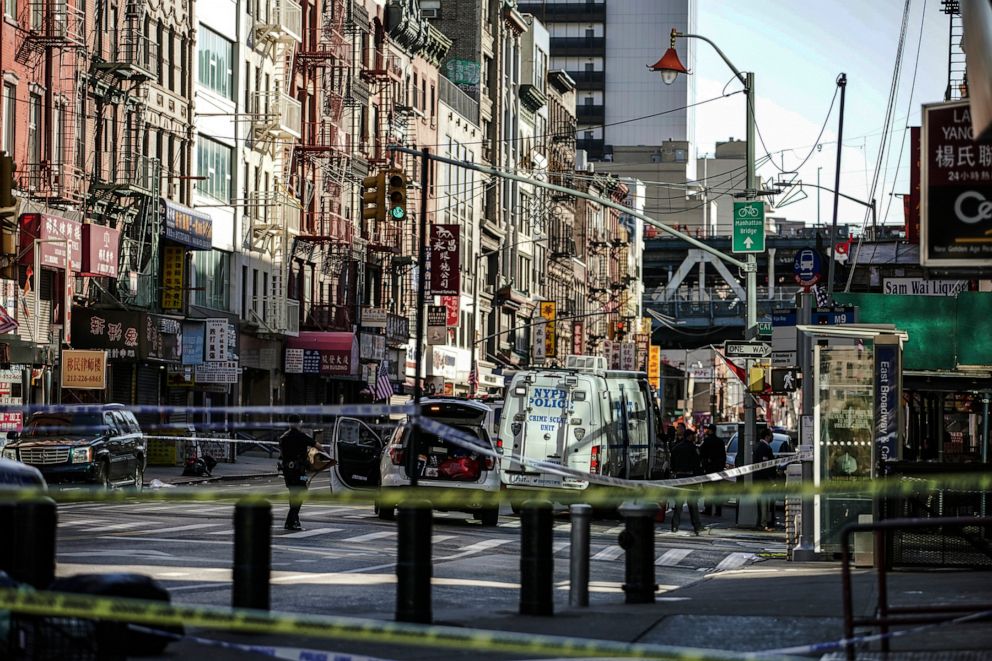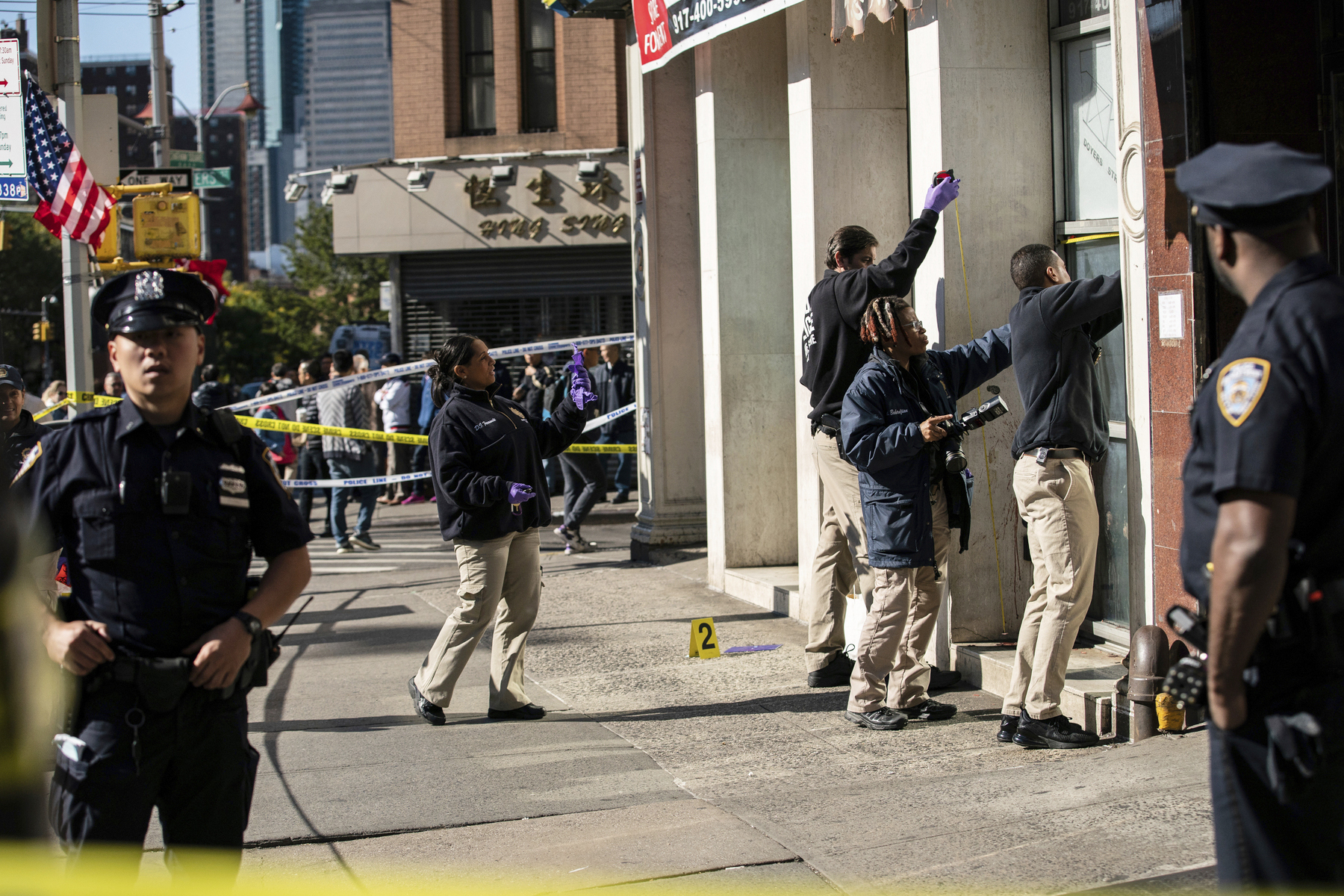Homeless advocates say there's only one real solution to stopping people from sleeping on the streets
Advocates weigh in on what they say is the only lasting answer.
The string of violent attacks against homeless individuals in New York City this weekend which left four people dead and a fifth injured has prompted outcry among advocates and officials.
The attacks, which took place in Chinatown early Saturday morning, "shakes the conscience of who we are as New Yorkers," said New York City Mayor Bill de Blasio via a statement released Monday.
"We are sending experts to the neighborhood to provide support during this difficult time, and will continue to assess how to prevent tragedies like this from happening in the future," de Blasio said.
Three advocates who work for different non-profits dedicated to tackling homelessness in New York said that there is no mystery surrounding the solution -- instead -- it’s just a matter of having the political will to take the steps necessary to solving the problem.

The solution to homelessness is "not happening because we don’t know the answer and we need to come up with the answer," said Aine Duggan, the president and CEO of the Partnership for the Homeless.
"We have known the answer for decades and we've been speaking to elected officials about this answer," said Duggan.
That answer is a need for more affordable housing and supportive housing, specifically in areas like New York City, according to Duggan and two other experts.
"We have a crisis on our hands," said Giselle Routhier, the policy director for the Coalition for the Homeless.
"It’s a crisis that’s fueled by increasing gaps between rents and wages, and the fact that deeply affordable housing is not being built and we're losing units by the day," she added.
Although New York City has the largest homeless population in the country, the "majority of people are sheltered every night" as a result of the city’s right to shelter mandate, but there are still several thousand who sleep on the streets rather than stay in shelters, Routhier noted.
"The folks that are on the streets at night are likely the most vulnerable," she said, and those individuals likely "can’t handle living in a dorm style setting, and may be dealing with a substance abuse issue or a mental health issue, or be a senior."
Cities with the most sizable homeless populations tend to be "the most populous and those with the tightest housing markets," Routhier said, which would apply to places like Los Angeles and San Francisco.

The 2018 homeless counts from the Department of Housing and Urban Development which are used by the National Alliance to End Homelessness reported that there were more than 91 homeless individuals per 10,000 people in New York City, more than 77 homeless people per 10,000 in San Francisco, and more than 53 homeless people per 10,000 in Los Angeles. Other areas that stand out include Washington D.C. where there are an estimated 99 homeless people per 10,000 in the city and in Honolulu, Hawaii, where there are an estimated 45 homeless people per 10,000 in the population.
Andrew Coamey, the senior vice president of Housing Works, a New York-based charity with the mission of ending the dual crises of homelessness and HIV, said that the homelessness in "pretty much every major city in the country [is] at epidemic proportions."
"Part of the issue is that we continue to have short-term solutions," Coamey said, echoing the other advocates in calling for permanent affordable housing as the ultimate answer to the larger issue and the violence seen this weekend.
"I don’t think [supportive housing is] the answer to one individual's act of violence, but if those folks were not sleeping on the street they would not have been vulnerable to this kind of an attack," he said.
"[The attacker] didn't go into someone's house. He preyed on very vulnerable people who shouldn’t be sleeping on the streets," Coamey said.
De Blasio’s office announced steps that will be taken in response to the attacks, including putting more counselors and mental health outreach teams on the ground, both in the Chinatown area where the attacks took place and in community locations throughout the city.
Duggan said in the wake of Saturday’s slayings, among the Partnership for the Homeless’ clients, "There is definitely a sense of heightened fear and also just a lot of silence. People are really lost for words, like how do you respond to something so awful and so tragic?"
She said there’s at least one other step that can be taken to help with the mourning, and that is for the identities of the victims to be released as soon as possible.
"All New Yorkers care when any of us get hurt in senseless ways ... but these New Yorkers are invisible until we know their names," Duggan said.
Three of the four murdered men have been identified by the city’s medical examiner: Anthony L. Manson, 49, Nazario A. Vazquez Villegas, 55, Chuen Kok, 83. They all died as a result of blunt impact head trauma with skull fractures and brain injury.
The fourth victim has yet to be identified.




